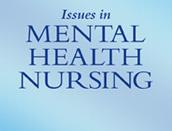Introduction:
The aim of this paper is two fold. Firstly, I wish to offer a reflective account of personal development, and secondly, offer a critical analysis of one area of practice in my placement area, and make recommendations as to how it may be possible to better engage clients and alleviate some of the more pressing withdrawal symptoms.
PART 1: JOHNS REFLECTIVE CYCLE (1992) AND CARPER (1978):
Description of the Placement Experience:
The placement area that I was assigned to is a Tier 3 community opiate detoxification team (National Treatment Agency for Substance Misuse, 2002), aimed at those members of the community who felt that their motivation to detox was such that they had no need for inpatient services, or the more closely observed interventions of the Drug Dependency Unit (DDU) or Drug Intervention Programme (DIP). This is part of a consultant led service (Merseycare, 2007), employing staff from many different disciplines, such as social workers, counsellors and both General and Mental Health nursing staff (Audit Commission, 2002).
The team offers patient assessments for the community setting as well as assessments for those suited to an inpatient detox unit, a three-week community based detoxification regime off opiates such as heroin and methadone using Subutex or Lofexedine as well as making use of Naltrexone should the client require it as a relapse prevention strategy, and effective working partnerships with other professionals.
By the midway point of my placement, I was fully involved in all these areas, working on my own as a part of the team. My mentor was always available should I have needed her input, and the rest of the staff team were more than willing to answer any questions that I might have. All documentation that I completed was checked and countersigned by my mentor or...


